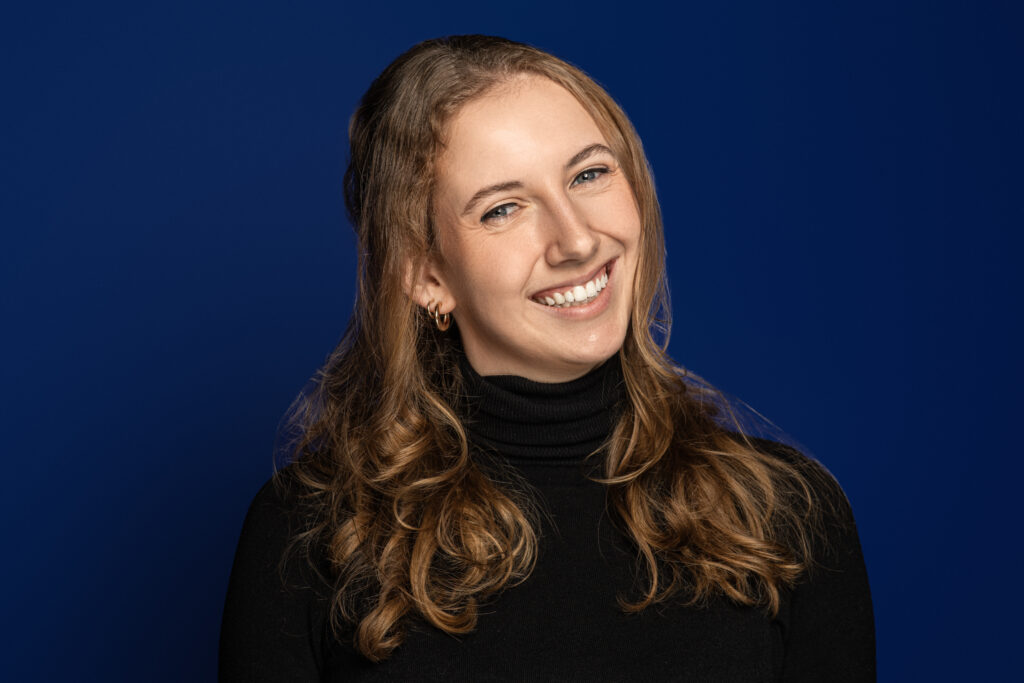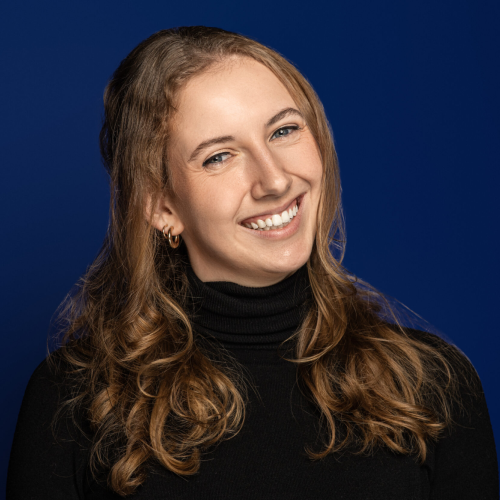

Netherlands-based former student, Louisa was studying during the pandemic, when she found participating in a virtual exchange helped her make the best of a tricky situation.
“My Erasmus exchange was cancelled’, explains Louisa. “I was supposed to go to the United States but that didn’t happen. I decided to make the best of things and I managed to get to Barcelona. But of course, I was a bit isolated as everything was online and I was alone in my room.
“My teacher, Ivonne Dekker was so enthusiastic about the virtual exchange and I trusted her judgement completely. I went into it blind I’d say! We had participants from Léon in Spain, Finland, Poland and the Netherlands.”
Structure of the virtual exchange
Louisa says the structure of the virtual exchange was very loose and the students needed to work out what to do and how to do it.
“I liked the loose structure as it allowed for different perspectives. We all participated on a voluntary basis and only for the Spanish students was it mandatory.”
The theme of the exchange was tourism. The students had to produce a brochure promoting their respective countries.
“At least that is how we interpreted it’, says Louisa. ‘In fact, it was interesting at the end to come together and see what others had understood and what they had produced as a result of the international collaboration. We all had different interpretations. Ours won the competition in the end!”
How we worked during the VE
Louisa believes that the teachers: Ivonne, Judit and Katarzyna intended the task to be open to interpretation.
“We had to hand in a weekly report and receive feedback from our teachers. With them, we explained what was working and what was challenging. Their questions enabled us to realise that we were too focused on ourselves and our own country. In fact, we had forgotten to be curious and focused on the others and their respective countries. This was a real light bulb moment for us and it resulted in us changing our focus. Finally we were beginning to understand the purpose of the assignment of this virtual exchange!
“This new mindset meant our final piece of work turned out differently because we began asking the others what they were doing asking ourselves the same question.”
Virtual exchange challenges and successes
The main challenge for Louisa was the issue of the Spanish students participating on a mandatory basis as opposed to the other partners taking part on a voluntary basis.
“It meant that some of the Spanish students were only focusing on what they needed to do to get the credits. Whereas most of us chose this because we really wanted to do it and we were prepared to dig deeper.
“Also we had to think about how we communicated, as we Dutch, we can be quite direct’, she laughs. “I realised that I needed to tone it down at times. So the peer-to-peer learning was significant and we had to adapt.”
Another issue for the group work was that some of the Spanish students began to tail off during the virtual exchange. This led to Louisa and her group having to discuss the impact of this to the Spanish students who did continue to show up.
“Actually, this turned out to be positive for us in the end’, she explains. “It meant we needed to step up and fill the gaps left by those who dropped out. It was great fun because I had to learn about Spain and compare my perspective on Spain with a Spanish perspective on Spain! This turned out to be super interesting!”
Value added from an international collaboration
“People who sign up voluntarily are usually curious about other cultures and open to the concept of lifelong learning’, says Louisa.
“As a result of my virtual exchange experience, I have built connections beyond the confines of the project. I’m still in touch with some and it’s so fun to see what they end up doing. One is now a flight attendant for example!
“I graduated in 2023, but I still work at Creative Business and I want to help Ivonne to continue to promote VE in our work here.
“Opening your eyes to other perspectives is really valuable and in this kind of scenario it makes it useful to learn by fact checking with peers. You can bring new ideas to the table when you are prepared to go beyond seeing things from your own cultural perspective.”
